Speech therapy helps children build skills needed to communicate with others and understand the world around them.

Stuttering is a common type of fluency disorder. Speech fluency refers to a child’s ability to speak clearly and express themselves effectively. Others can easily understand what the child is saying, even if they don’t know them very well.

Articulation is the way we make speech sounds using different parts of our mouth, like the tongue, lips, teeth, and air.

Auditory Processing is the way our brain processes and understands sounds, like speech or instructions.

Feeding skills, also known as oral motor skills, refer to the coordination and strength of the muscles involved in eating, drinking, and speaking.
Speech Therapists certified in a specialized technique called PROMPT (Prompts for Restructuring Oral Muscular Phonetic Targets) provide tactile cues and support to help a child learn to move their oral muscles more effectively for speech production.

Expressive language refers to the ability to use words, gestures and sentences to express thoughts, feelings, ideas and needs.

Receptive language refers to the ability to understand and comprehend spoken language, including following instructions, understanding questions, and grasping the meaning of words and sentences.

Literacy refers to the ability to read and write. It involves using reading and writing skills to communicate effectively in written form, understand written information, and use written materials for learning and personal enjoyment. Literacy skills are essential for success in school and in life, as they are used in almost every aspect of daily life, from reading instructions and signs, to writing emails and reports. In simpler terms, literacy is the ability to read and write, which is crucial for success in school and beyond.

Executive functioning refers to a set of cognitive skills that help with planning, organizing, problem-solving, and self-regulation. It involves the ability to manage tasks, make decisions, and control impulses. Generally, children begin to develop basic executive functioning skills around the age of 2 or 3 years old, and these skills continue to develop and refine throughout childhood and adolescence.
Joint attention is the ability to share attention with another person or object. Joint attention is an important skill for language development, as it helps children learn to communicate and engage with others. In speech therapy, joint attention may be encouraged through games and activities that involve shared attention, such as pointing to objects and labeling them, or following the child’s lead in play. The goal of joint attention in speech therapy is to improve the child’s ability to communicate and interact with others in a meaningful way.

Impulsivity refers to acting without thinking or considering the consequences, which can lead to mistakes or risky behavior. It involves difficulty in controlling immediate reactions, impulses, or urges.

Emotional regulation refers to the ability to manage and control emotions in a healthy and appropriate manner, such as the ability to calm oneself down after experiencing strong emotions or tolerating uncomfortable emotions without becoming overwhelmed. It involves understanding, expressing, and managing emotions effectively. Good emotional regulation skills can help us navigate challenging situations, build healthy relationships, and cope with stress.

Social emotional skills refer to the abilities and behaviors that allow a child to understand emotion, develop positive relationships with others, and navigate social situations. These skills are important for children’s overall wellbeing and success in many areas of life, including school, friendships, and family relationships.

An AAC (augmentative and alternative communication) device is a tool or system that can help people who have difficulty speaking or communicating verbally. AAC devices can take many forms, including electronic devices with symbols or pictures that can be selected to represent words, phrases, or sentences.
AAC devices can be a valuable tool for children who have difficulty with verbal communication, and a speech therapist can play an important role in helping the child learn how to effectively use the device to communicate.
Get in touch
Emotional regulation refers to the ability to manage and control emotions in a healthy and appropriate manner, such as the ability to calm oneself down after experiencing strong emotions or tolerating uncomfortable emotions without becoming overwhelmed. It involves understanding, expressing, and managing emotions effectively. Good emotional regulation skills can help us navigate challenging situations, build healthy relationships, and cope with stress.

The Sensory Studio is a private, family-based practice specializing in pediatric speech therapy and occupational therapy in Staten Island, New York. Our skilled therapists are dedicated to unlocking the full potential of every child through individualized therapy programs tailored to their unique needs.
Copyright © 2023 The Sensory Studio | Privacy Policy | Designed by Scaled Tech Solutions
Social skills is the ability to use appropriate words, tone, and body language to communicate effectively in social situations.